Acknowledgments
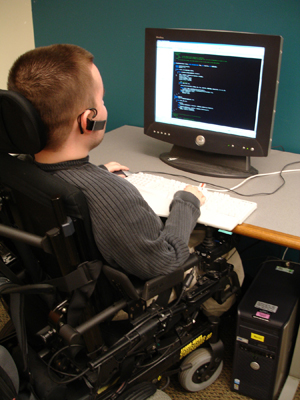 AccessComputing capacity building activities are funded by the National Science Foundation (grant #CNS-1042260). They were coordinated by the Alliance for Access to Computing Careers, which is led by the Department of Computer Science and Engineering and DO-IT at the University of Washington.
AccessComputing capacity building activities are funded by the National Science Foundation (grant #CNS-1042260). They were coordinated by the Alliance for Access to Computing Careers, which is led by the Department of Computer Science and Engineering and DO-IT at the University of Washington.
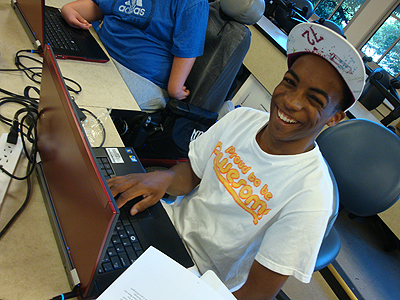 Among the strategies for meeting AccessComputing objectives are Communities of Practice (CoPs) for stakeholder groups. Communicating using email and other electronic tools, CoPs share perspectives and expertise and identify practices that promote the participation of people with disabilities in computing fields. The eight project CoPs are described below. Members in all CoPs:
Among the strategies for meeting AccessComputing objectives are Communities of Practice (CoPs) for stakeholder groups. Communicating using email and other electronic tools, CoPs share perspectives and expertise and identify practices that promote the participation of people with disabilities in computing fields. The eight project CoPs are described below. Members in all CoPs: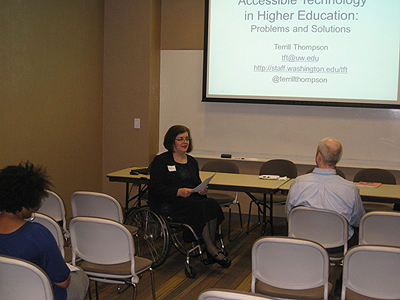 Accessible Technology in Education: Problems and Solutions
Accessible Technology in Education: Problems and Solutions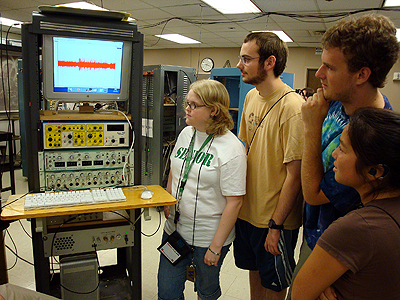 8:00 a.m. - 8:30 a.m.
8:00 a.m. - 8:30 a.m.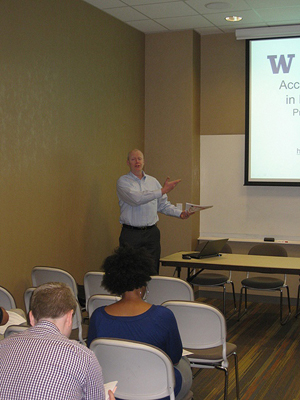 Universal Design in Academia: A Capacity Building Institute took place April 11, 2012 in Auburn, Alabama. Its overall purpose was to bring together a select group of national experts to help Auburn University faculty and staff reduce barriers and optimize levels of challenge and support to meet the needs of all learners.
Universal Design in Academia: A Capacity Building Institute took place April 11, 2012 in Auburn, Alabama. Its overall purpose was to bring together a select group of national experts to help Auburn University faculty and staff reduce barriers and optimize levels of challenge and support to meet the needs of all learners.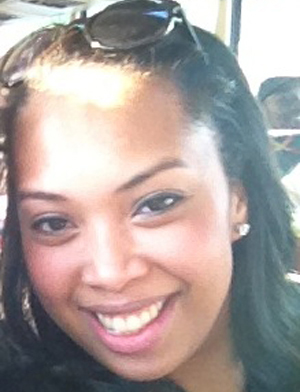 My name is Diana. I graduated last year from Georgia State University (GSU) with a bachelor's degree in Business Administration in Computer Information Systems and a Certificate of International Business. The IT field is always changing, and I excel in dynamic environments, so computing was a great fit for me.
My name is Diana. I graduated last year from Georgia State University (GSU) with a bachelor's degree in Business Administration in Computer Information Systems and a Certificate of International Business. The IT field is always changing, and I excel in dynamic environments, so computing was a great fit for me.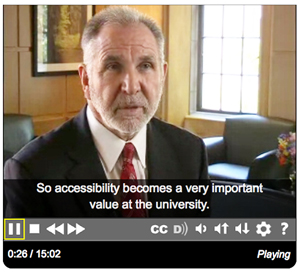 AccessComputing's new video, titled IT Accessibility: What Campus Leaders Have to Say, features university presidents and chancellors, chief information officers, and other information technology (IT) leaders sharing their thoughts and strategies related to IT accessibility in higher education.
AccessComputing's new video, titled IT Accessibility: What Campus Leaders Have to Say, features university presidents and chancellors, chief information officers, and other information technology (IT) leaders sharing their thoughts and strategies related to IT accessibility in higher education.